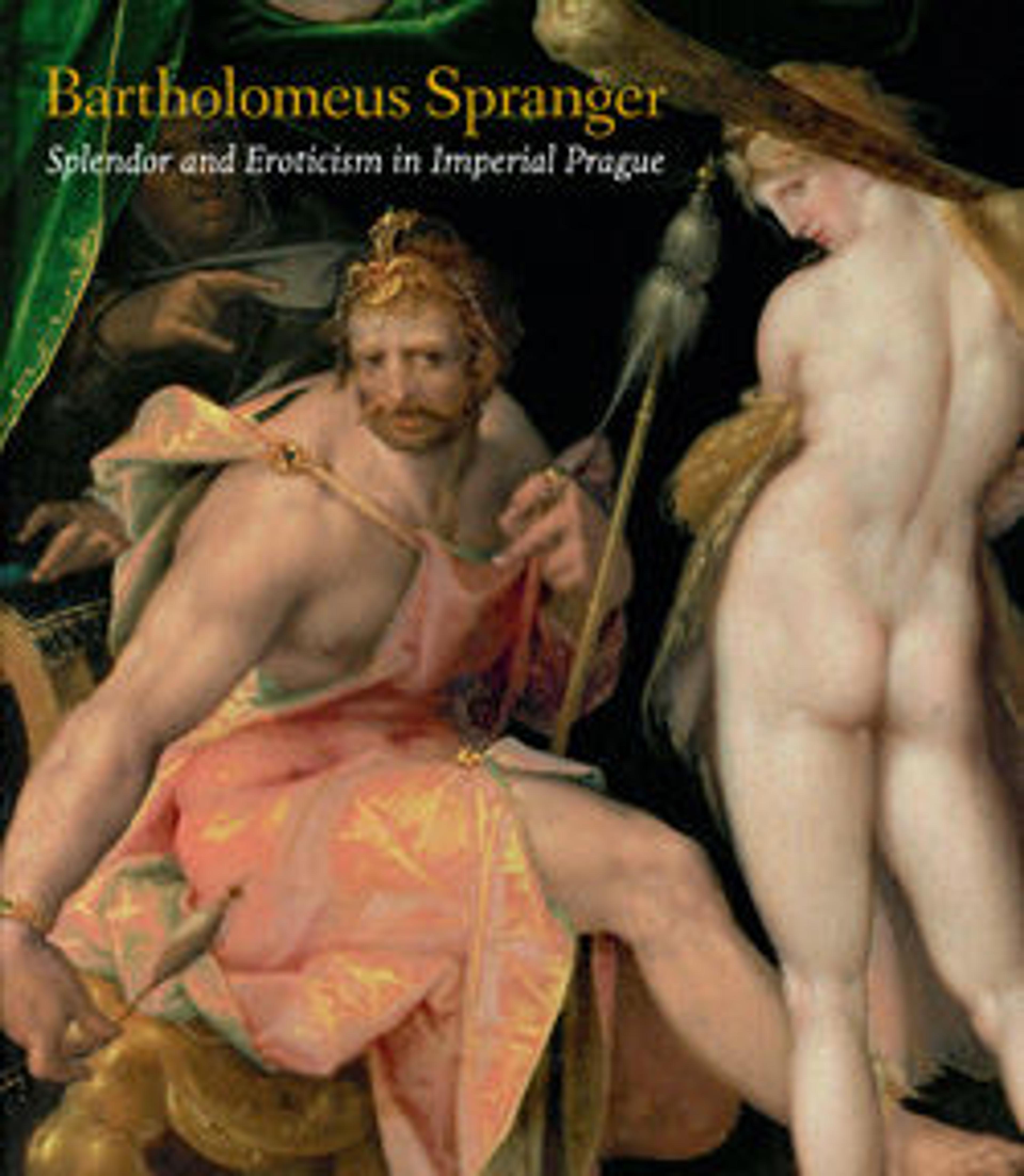Sine Cerere et Baccho Friget Venus [Without Ceres and Bacchus Venus Grows Cold]
Between 1597 and 1606, Jan Muller made a number of large-scale engravings after Bartholomeus Spranger, the court painter to Emperor Rudolf II. As in the present work all were mythological subjects with erotic themes or overtones, and Muller used a dynamic swelling and tapering line to capture the mannered poses and exaggerated musculature of Spranger’s subjects.
The subject is taken from The Eunuch, a comedy from 161 BCE by the Roman playwright Terrence. Its meaning is that without food and wine, love would grow cold and is illustrated by the presence of Ceres, the goddess of agriculture and Bacchus, the god of wine and fertility walking off, while Venus, the goddess of love stays behind with Cupid, warming themselves at a fire. The theme was a popular one in the late sixteenth century and particularly at Rudolf’s court, but the interpretation here is unusual. Usually Bacchus and Ceres have not already left Venus behind. The design is based on a painting from around 1600 by Spranger, now in the Kunsthistorisches Museum, Vienna (inv. no. Gemäldegalerie 2435), which was painted for Rudolf.
The subject is taken from The Eunuch, a comedy from 161 BCE by the Roman playwright Terrence. Its meaning is that without food and wine, love would grow cold and is illustrated by the presence of Ceres, the goddess of agriculture and Bacchus, the god of wine and fertility walking off, while Venus, the goddess of love stays behind with Cupid, warming themselves at a fire. The theme was a popular one in the late sixteenth century and particularly at Rudolf’s court, but the interpretation here is unusual. Usually Bacchus and Ceres have not already left Venus behind. The design is based on a painting from around 1600 by Spranger, now in the Kunsthistorisches Museum, Vienna (inv. no. Gemäldegalerie 2435), which was painted for Rudolf.
Artwork Details
- Title: Sine Cerere et Baccho Friget Venus [Without Ceres and Bacchus Venus Grows Cold]
- Artist: Jan Muller (Netherlandish, Amsterdam 1571–1628 Amsterdam)
- Artist: After Bartholomeus Spranger (Netherlandish, Antwerp 1546–1611 Prague)
- Date: ca. 1597
- Medium: Engraving; New Holl.’s second state of four
- Dimensions: sheet: 20 x 14 1/8 in. (50.8 x 35.8 cm)
- Classification: Prints
- Credit Line: The Elisha Whittelsey Collection, The Elisha Whittelsey Fund, 1949
- Object Number: 49.50.406
- Curatorial Department: Drawings and Prints
More Artwork
Research Resources
The Met provides unparalleled resources for research and welcomes an international community of students and scholars. The Met's Open Access API is where creators and researchers can connect to the The Met collection. Open Access data and public domain images are available for unrestricted commercial and noncommercial use without permission or fee.
To request images under copyright and other restrictions, please use this Image Request form.
Feedback
We continue to research and examine historical and cultural context for objects in The Met collection. If you have comments or questions about this object record, please contact us using the form below. The Museum looks forward to receiving your comments.
